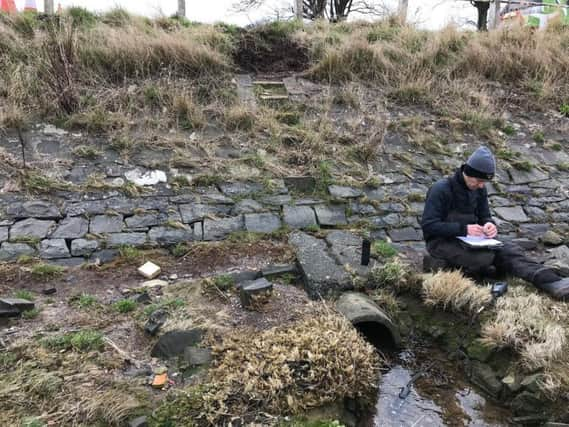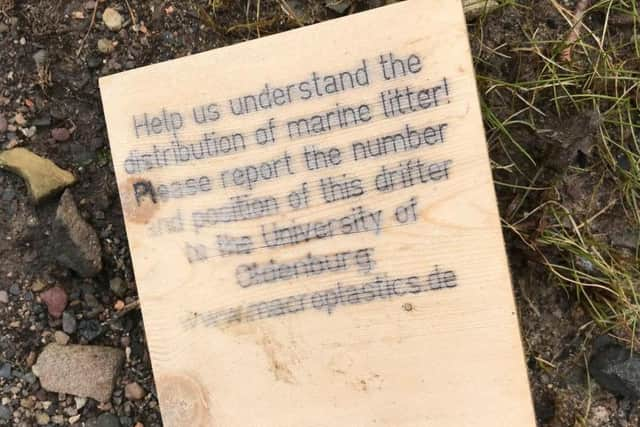Mysterious wooden drifters wash up on North East coast


The wooden blocks, which have washed up from North Northumberland right down to Teesside, are part of a German university’s efforts to understand marine macroplastics and their impact on our seas.
It is estimated that 13,000 pieces of plastic litter are floating within every square kilometre of our oceans.


Advertisement
Hide AdAdvertisement
Hide AdThe University of Oldenburg is researching and mapping the movement of marine debris using the drifters.
This month the Environment Agency’s Analysis and Reporting team found a drifter at Budle Bay while out taking water samples.
And staff and volunteers of Lindisfarne National Nature Reserve also found two at Budle Bay, one during a beach clean and another during water sampling, and a third one at North Shore at Holy Island.
And they found two more at Goswick.


Each wooden drifter has on it information about the project and how to report their find, with each block sporting a unique identification code.
Advertisement
Hide AdAdvertisement
Hide AdOver the course of the project the university has released 100,000 of the blocks of various thickness into the North Sea off the German coast and its tributaries to understand the spread of plastic waste and the source of pollution.
The Environment Agency’s Hannah Westoby, who found the drifter at Budle Bay, said:“Plastic pollution is a threat to our natural environment and the Environment Agency is playing a role in reducing the amount that enters our land, rivers and sea.
“This is a really interesting project which hopes to better understand the movement and spread of plastic waste that enters our waters and we look forward to seeing the results of the university’s research.”
Keep your eyes peeled for any drifters you find to support their data collection – more information can be found here: www.macroplastics.de